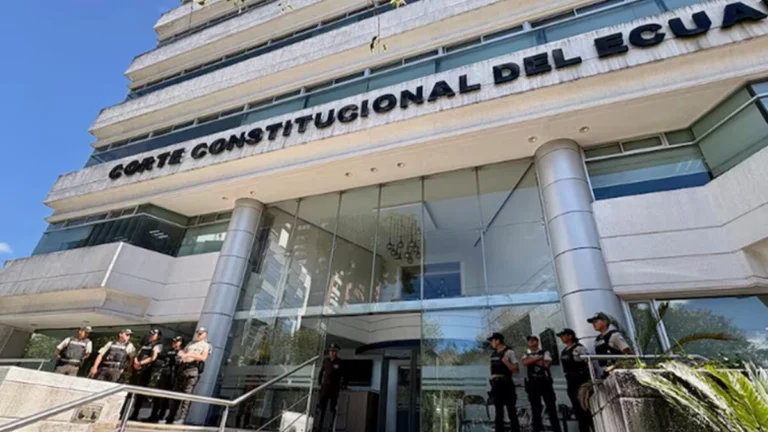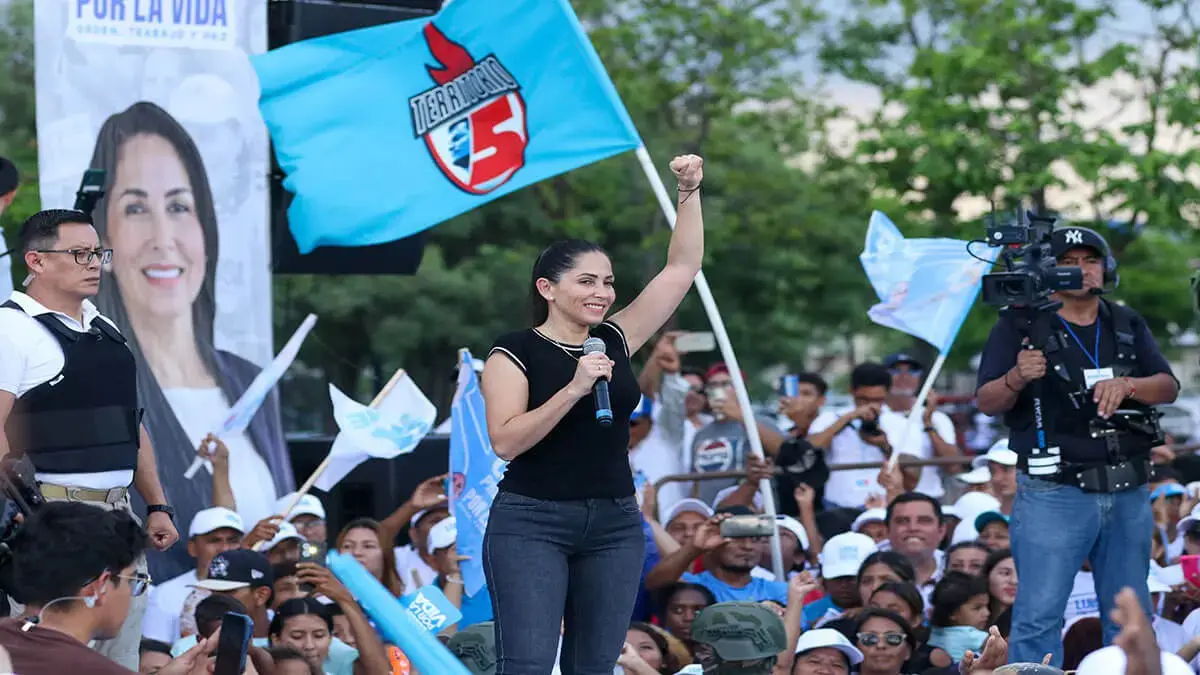Ecuador: CONAIE Accuses Noboa of Undermining Constitutional Court’s Independence

Constitutiona Court headquarters in Quito, Ecuador. X/ @Expedientes_ec
August 6, 2025 Hour: 1:32 pm
The Court’s function is to exercise constitutional oversight, not to please whoever is in power, the Indigenous movement said.
On Wednesday, the Confederation of Indigenous Nationalities of Ecuador (CONAIE) accused President Daniel Noboa of attempting to delegitimize and weaken the independence of the Constitutional Court (CC), after the country’s highest tribunal temporarily suspended several articles from various laws promoted by the right-wing politician.
RELATED:
Environmentalists in Ecuador protest against Noboa’s policies
“We are alarmed by the reaction of Government Minister Zaida Rovira and National Assembly President Niels Olsen, who, surrounded by police officers—instead of respecting the Court’s decision—accuse it of favoring organized crime,” CONAIE said in a statement.
“This perverse narrative seeks to delegitimize the Court, weaken its independence, and justify a political offensive against constitutional justice. The Court’s primary function is to exercise constitutional oversight, not to please whoever is in power,” it added.
CONAIE rejected what it called an attempt to undermine democratic institutions and emphasized that “neither the Constitutional Court nor critical dissenting voices are serving any criminal group.”
The text reads, “Out with Noboa, out with Noboa! Protests in Quito against the Noboa administration and its ties to Israel. Protesters reject Noboa’s Decree 60, which eliminates ministries and jobs, and criticize his ties to Israel for its role in the Gaza conflict.”
On Monday, the Constitutional Court of Ecuador decided to temporarily suspend several articles from laws presented by Noboa under the designation of “urgent,” which required the Assembly to approve each law within 30 days.
Among the suspended provisions are those in the Intelligence Law that would allow undercover agents to assume false identities, permit the national intelligence system to request information on any citizen from telecom companies, and authorize the use of funds without complying with public procurement laws.
Regarding the National Solidarity Law—initially aimed at increasing resources for security forces combating organized crime—the Court suspended an article granting Noboa the prerogative of “preemptive pardons” for police and military personnel prosecuted for crimes committed under the “internal armed conflict” declared by the president against criminal gangs earlier in 2024.
Constitutional judges also suspended provisions related to the creation of a special legal regime under the “internal armed conflict” designation, which outlined a series of military objectives for law enforcement agencies. These measures were widely criticized by social organizations, human rights advocates, and labor unions, who filed dozens of constitutional challenges, arguing that the laws violated various rights.
However, following the Court’s announcement, government officials Rovira and Olsen denounced the decision in a public statement—delivered while flanked by police and military officers—and accused the judges of siding with the “enemies of the people.”
CONAIE welcomed the Court’s decision, asserting that the laws “contain openly unconstitutional provisions that threaten fundamental rights.”
“With laws fast-tracked under the guise of ‘economic urgency,’ the government has sought to concentrate state control, expanding its ability to impose decisions without democratic debate,” the organization said.
CONAIE urged the Constitutional Court to maintain its independence and uphold the Constitution in the face of other proposals by Noboa, such as the Protected Areas Law and the Law for the Control of Irregular Capital Flows, which, it warned, threaten collective rights, ancestral territories, and the rights of nature.
“Now more than ever, it is essential to defend the independence of the Constitutional Court as a guarantor of rights, balance among branches of political power, and true democracy,” concluded CONAIE, which led mass protests in 2019 and 2022 against former presidents Lenin Moreno and Guillermo Lasso, respectively.
teleSUR/ JF
Source: CONAIE – EFE






